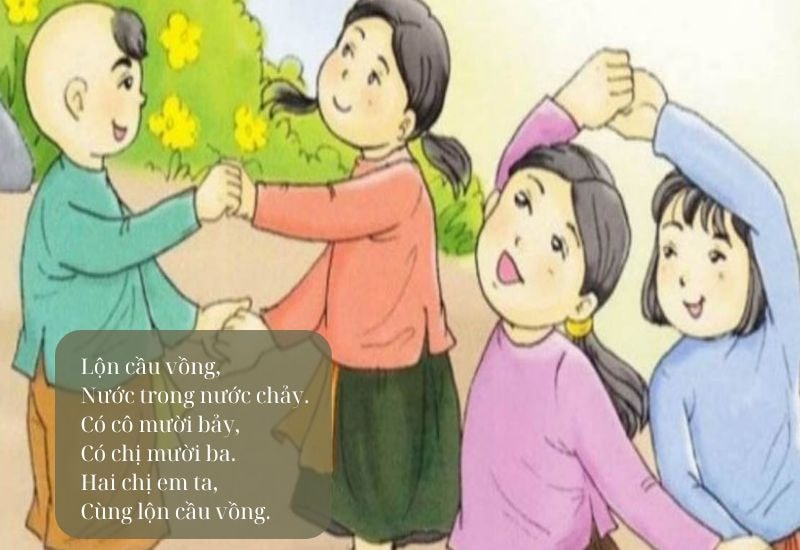
From a term referring to intellectual decline, Brain Rot has now transformed into a trend, an addictive content ecosystem on the internet, where users are drawn to characters, sounds, and phrases so common that they are heard and seen everywhere.
A Brain Rot universe, featuring images of surreal characters created by AI and content creators, set against a backdrop of electronically orchestrated music, is creating a sensation among young people, especially children. My two little ones are no exception. Listening to them play together, excitedly singing those unfamiliar, soulless songs, suddenly brings back strange memories of the nursery rhymes of my own childhood.
There's the "Chi chi chanh chanh" song from my early childhood, when I was still too young to speak properly, babbling along with my mother: "Chi chi chanh chanh / The nail blows fire / The horse breaks the reins / Three kings and five emperors / Catching crickets to find them / U a u ap".
A little older, I would follow the neighborhood kids as they gathered to play and sing "Turning the Rainbow": "Turning the rainbow / The river flows / There's a seventeen-year-old girl / There's a thirteen-year-old sister / We two sisters / Together we turn the rainbow."
Or, when playing "Globe" (a game involving clawing and popping), if there are more people, you can play "Dragon and Snake Climbing the Clouds": "Dragon and snake climbing the clouds / There's a swaying tree / Is the owner home?"...
Nursery rhymes have accompanied us throughout our childhood. Time may have diminished the exact wording, but the memories of those rhymes and games remain. That's why I wonder why children today seem less interested in this precious treasure.
Perhaps changes in living environments have diminished the role of nursery rhymes, as children have less space to participate in group games. But upon reflection, perhaps the majority of the blame lies with us adults. Being too busy with the struggle for survival and providing material comforts, we seem to have forgotten to pass on to our children a rich and vibrant spiritual life.
Learning about children's rhymes through newspapers and books is even rarer. Meanwhile, dedicated efforts to collecting and preserving children's rhymes do exist. Books guiding how to sing and use rhymes in children's games, such as "119 Children's Rhyme Games," "219 Folk Games for Preschoolers," etc., seem to attract only preschool and primary school teachers and receive little attention from parents.
Will children's rhymes survive in the long run, or will they fade into the distant realm of memory? The question, "Where are children's rhymes going, oh where are they now?", will continue to haunt us.
Source: https://baodanang.vn/ve-dau-oi-hoi-dong-dao-3302799.html







































![[Photo] A large number of people offer incense and visit the Ho Chi Minh Memorial Church.](https://vphoto.vietnam.vn/thumb/1200x675/vietnam/resource/IMAGE/2026/02/21/1771668099014_ndo_br_12-resize-7721-jpg.webp)










































































Comment (0)